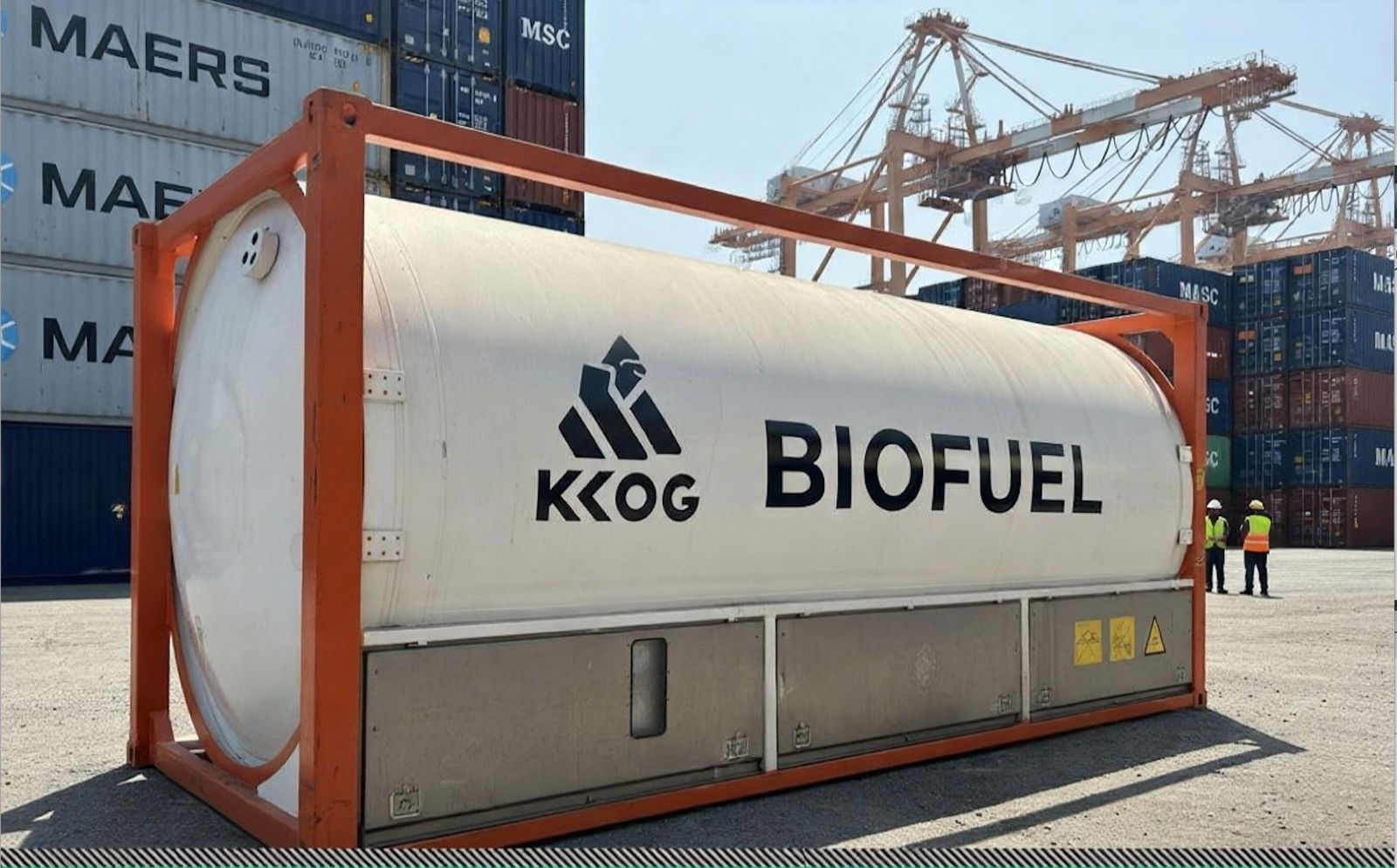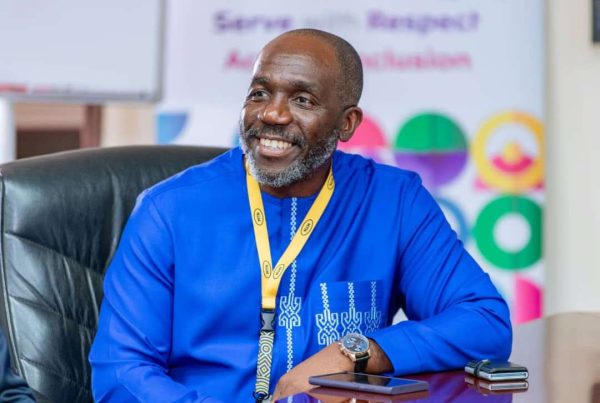South Africa is taking a bold step toward decarbonizing its economy by partnering with KKOG Global SA on a large-scale biofuel project that uses hemp instead of the traditional corn and soybean, a move expected to cut carbon emissions by up to 2.5 million tons per facility each year and position the country as a continental leader in green energy transition.
Under the project, KKOG will cultivate 10,000-hectare hemp farm in South Africa’s Eastern Cape, producing biofuel for international shipping companies. The company, Africa’s largest licensed cannabis producer says its technology achieves an energy conversion efficiency of 97 percent, far outpacing corn (33 percent) and soybean (37 percent), the two main sources of biofuel globally.
“This is more than an energy project; it’s a model for sustainable industrialization across Africa,” KKOG Chief Executive Officer, Edouard Joseph said in an exclusive interview “With hemp, we can help countries meet their Paris Agreement targets while creating jobs and generating foreign exchange.”
South Africa’s Green Bet: Turning Hemp Into Energy
The project comes as countries across Africa race to meet their 2030 emission reduction commitments under the Paris Accord, a prerequisite for unlocking billions of dollars in climate financing from international lenders and development partners.
South Africa, which remains one of the continent’s top emitters, has been among the few to align policy and investment in renewable fuels. By embracing cannabis for industrial use, a decision that mirrors policy shifts in the U.S., Canada, and Germany. President Cyril Ramaphosa’s administration has opened a new front in Africa’s green economy.
The Eastern Cape project, registered as KKOG Global SA, aims to deliver a scalable model of “carbon-negative fuel” production. Each facility will deploy advanced pyrolysis and transesterification processes to convert hemp biomass into biodiesel.
“South Africa is positioning itself where the world is headed, green energy, ethical production, and circular economics,” Joseph said. “Hemp biofuel could become our clean alternative to coal exports.”
Biofuel’s Next Generation: Why Hemp Beats Corn and Hydrogen
Globally, biofuel has been dominated by maize, sugarcane, and soybean-based ethanol. But KKOG argues that hemp outperforms all existing feedstocks. The crop grows faster, requires less water, and absorbs more CO₂ per hectare than most traditional energy crops.
While hydrogen has gained global traction as the next frontier of green fuel, it still faces major hurdles from expensive infrastructure to engine compatibility. Biofuel, by contrast, can be used in existing combustion engines and marine vessels without modification.
Hemp-derived biodiesel also has superior energy balance: it converts 97 percent of its biomass into usable fuel, compared with roughly a third for corn and soybean. This means lower land use per unit of energy produced, a critical advantage in regions facing both food security and deforestation pressures.
“Our technology is designed to make sustainability profitable,” Joseph said. “Hemp biofuel doesn’t just meet the new International Maritime Organization (IMO) standards for cleaner shipping; it sets a new efficiency benchmark.”
The International Maritime Organization has tightened emissions regulations for shipping, a sector responsible for nearly 3 percent of global greenhouse gas emissions. With firms like Maersk pledging carbon neutrality by 2040, demand for bio-based marine fuels is rising sharply. KKOG’s project will target such companies through direct contracts and joint ventures with ports and logistics operators.
Africa’s Carbon Clock: Funding Green Transitions by 2030
Across the continent, countries are under growing pressure to demonstrate measurable emission reductions before 2030, the key timeline under the Paris climate commitments. Without meeting these benchmarks, they risk losing access to billions in climate-linked grants and concessional loans from the European Union, World Bank, and other partners.
The European Union has already expressed interest in supporting South Africa’s biofuel sector as part of its “Global Gateway” initiative, aimed at financing sustainable infrastructure in developing economies.
KKOG is now in talks with several African governments including Kenya, Malawi, and Zimbabwe to replicate the South African model. Each project would operate under local licensing and environmental frameworks, with the company providing cultivation technology, processing equipment, and compliance support.
If fully implemented across five countries, KKOG estimates the initiative could offset more than 10 million tons of CO₂ annually and create over 7,500 jobs across farming, processing, and logistics.
“Africa can’t afford to miss the clean energy wave,” said the CEO. “Our approach gives governments a fast, verifiable way to hit their targets while building green industries.”
The company has also prioritized community inclusion, pledging education and training programs for local farmers and ensuring fair trade certification for all hemp supply chains.
From Stigma to Strategy
For decades, cannabis was viewed primarily through a criminal lens across Africa. But the plant’s industrial variant hemp contains minimal psychoactive compounds and has become a strategic crop for green industries worldwide.
South Africa’s decision to liberalize cannabis cultivation has spurred a wave of investment into textiles, pharmaceuticals, and energy products derived from the plant. By backing KKOG’s biofuel project, the government is betting that hemp could become, to Africa’s green transition, what oil was to its industrial past.
“President Ramaphosa’s pragmatism mirrors what we’ve seen in advanced economies,” said an energy analyst at Johannesburg’s Institute for Sustainability. “He’s looked beyond the stigma and seen the science and the economics.”
Outlook: Scaling a Green Revolution
KKOG’s Eastern Cape facility is expected to reach full commercial output by 2027, generating more than $27 million in annual revenues with an EBITDA margin above 30 percent. The company plans to expand across the continent under public-private partnerships that blend foreign climate finance with domestic agricultural resources.
For a continent still grappling with energy deficits and environmental degradation, the hemp biofuel model could redefine the narrative from dependency to innovation. As the global race for carbon neutrality accelerates, Africa’s most unconventional crop may hold one of its most powerful solutions.
“If we get this right,” Joseph said, “the next decade will see Africa exporting not just minerals or oil but clean energy to the world.”





